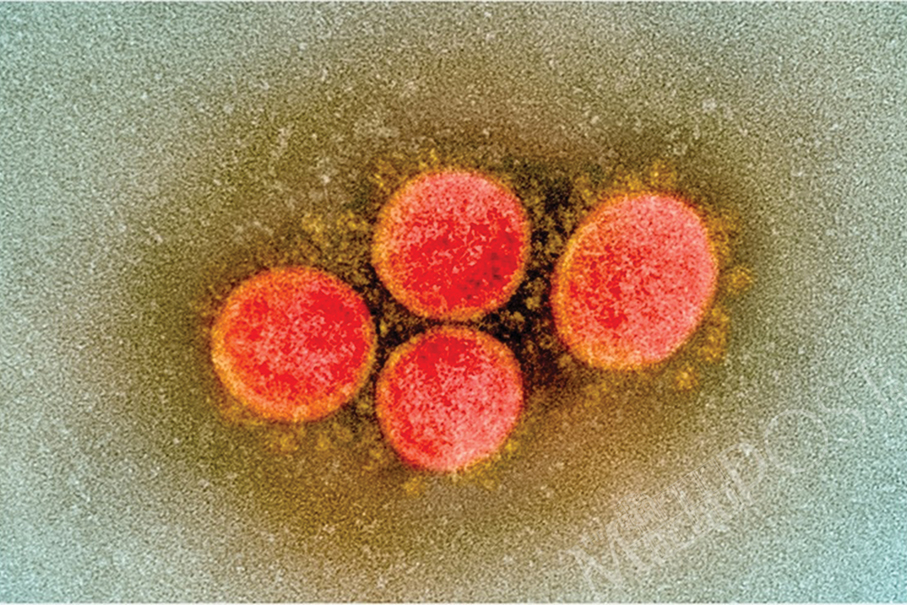2021-05-27 03:53 Comment:2
The Novel Coronavirus Response and Coordination Centre announced last night that Macau’s latest COVID-19 patient, the 51st case, which has been classified as imported, has been diagnosed with carrying the B.1.617 variant, the mutant strain spreading in India that is more contagious than the original novel coronavirus.
Last night’s statement noted that it is the first time the Indian mutant strain has been detected in Macau, which indicates that “Macau has always been facing the COVID-19 threat”, urging residents to be inoculated against COVID-19 as soon as possible.
Macau’s 51st COVID-19 case was confirmed on Monday, a 39-year-old man who returned to Macau on Wednesday last week from Nepal via Turkey, Paris and Taipei. According to Monday’s announcement by the centre, the man received his first Sinopharm jab in Macau on February 11 and his second shot on March 11, before travelling to Hong Kong on March 15 from where he departed for Nepal in late March.
According to Monday’s announcement, the man tested negative for COVID-19 in a nucleic acid test (NAT) in Nepal on Sunday last week, before flying to Turkey the next day. The man travelled to Paris on Tuesday last week from where he flew to Taipei, before returning to Macau on Wednesday last week. Upon arrival at the local airport, the man was taken to the public Conde de São Januário Hospital Centre where he tested negative for COVID-19 in a nucleic acid test but positive in an antibody test, after which he was taken to one of the government’s “quarantine hotels”, the announcement said, adding that he “weakly” tested positive for COVID-19 in a follow-up nucleic acid test on Monday, because of which he was taken to the Health Bureau’s (SSM) Public Health Clinical Centre in Coloane for medical observation.
‘Worrying variant of global concern’
Last night’s statement noted that the B.1.617 variant was first detected in India in December last year and has been causing a huge COVID-19 outbreak across the country. As the Indian variant has been detected in more and more countries, the World Health Organisation (WHO) has classified it as a “variant of global concern” and a “worrying variant”, the statement said, adding that the latest findings of research studies worldwide have indicated that the B.1.617 variant is more contagious than the original COVID-19 variant, but, according to the statement, COVID-19 vaccines remain effective against it.
The statement said that the man was still infected with the novel coronavirus after having been fully (twice) inoculated against COVID-19, possibly because he had still not developed enough COVID-19 immunity when he contracted the virus. Nevertheless, the fact that the man has merely been confirmed as an asymptomatic COVID-19 patient demonstrates that the COVID-19 vaccine is still able to provide a certain degree of protection, the statement said.
The statement underlined that COVID-19 vaccines can effectively prevent the novel coronavirus disease. Although COVID-19 vaccines cannot completely protect people from COVID-19 infection, in case a person who has had his or her COVID-19 jabs still becomes infected with the novel coronavirus, the vaccines can significantly reduce the risk of coming down with symptoms, suffering a serious condition or dying from the disease, the statement reaffirmed.
The statement said that the COVID-19 pandemic is now very serious globally, adding that new local COVID-19 cases have recently been reported in a number of cities in the mainland, apart from the fact that a number of jurisdictions which had previously recorded good results in bringing COVID-19 under control have now “suddenly” been hit by a COVID-19 outbreak.
Consequences would be very serious
While the Indian variant has been detected in Macau for the first time, the city’s vaccination rate is still low, the statement said, adding that the consequences would be very serious in case a COVID-19 outbreak occurred in Macau. Consequently, the statement said, residents should get their COVID-19 jabs as soon as possible.
The statement noted that those who have had the two COVID-19 jabs will only develop enough COVID-19 immunity at least 14 days after the second jab. Consequently, the statement said, residents should get their COVID-19 jabs right now before a possible COVID-19 epidemic hits Macau.
The statement also warned that residents who have been fully inoculated against COVID-19 should still avoid travelling to COVID-19 high-risk areas. If they really need to travel to COVID-19 high-risk areas, they should start their trip at least 14 days after having had the two COVID-19 jabs – which ensures that they will develop enough COVID-19 immunity – so as to reduce the risk of infection with the novel coronavirus, the statement said.

This image shows the highly contagious B.1.617 variant of SARS-CoV-2. Courtesy of news-medical.net
幾日後的5月29日,應變協調中心出了一條稿,名為「鄰近地區疫情擴大 應變協調中心再次呼籲及早接種、加強防範」,提到:近期,雖然歐洲、北美等疫苗接種率較高的地方疫情有所緩和,但過往疫情相對較緩和的亞洲國家和地區如日本、馬來西亞、泰國及台灣,在近期疫情急遽加重。這些地區疫苗接種率都相對較低。此外,內地疫情在春節後保持良好的勢態,但近期亦受外圍因素影響,遼寧、安徽、廣東省多地出現中風險地區。尤其是和本澳有密切聯繫的廣東省,每天有大量人員往返兩地,對本澳影響最大。
As of May 2021, the WHO’s designated variants of concern (VOCs) comprised Alpha (B.1.1.7), Beta (B.1.351), Gamma (P.1), and Delta (B.1.617.2), which were designated in December 2020, December 2020, January 2021, and May 2021 respectively. Details can be checked on: https://www.who.int/en/activities/tracking-SARS-CoV-2-variants